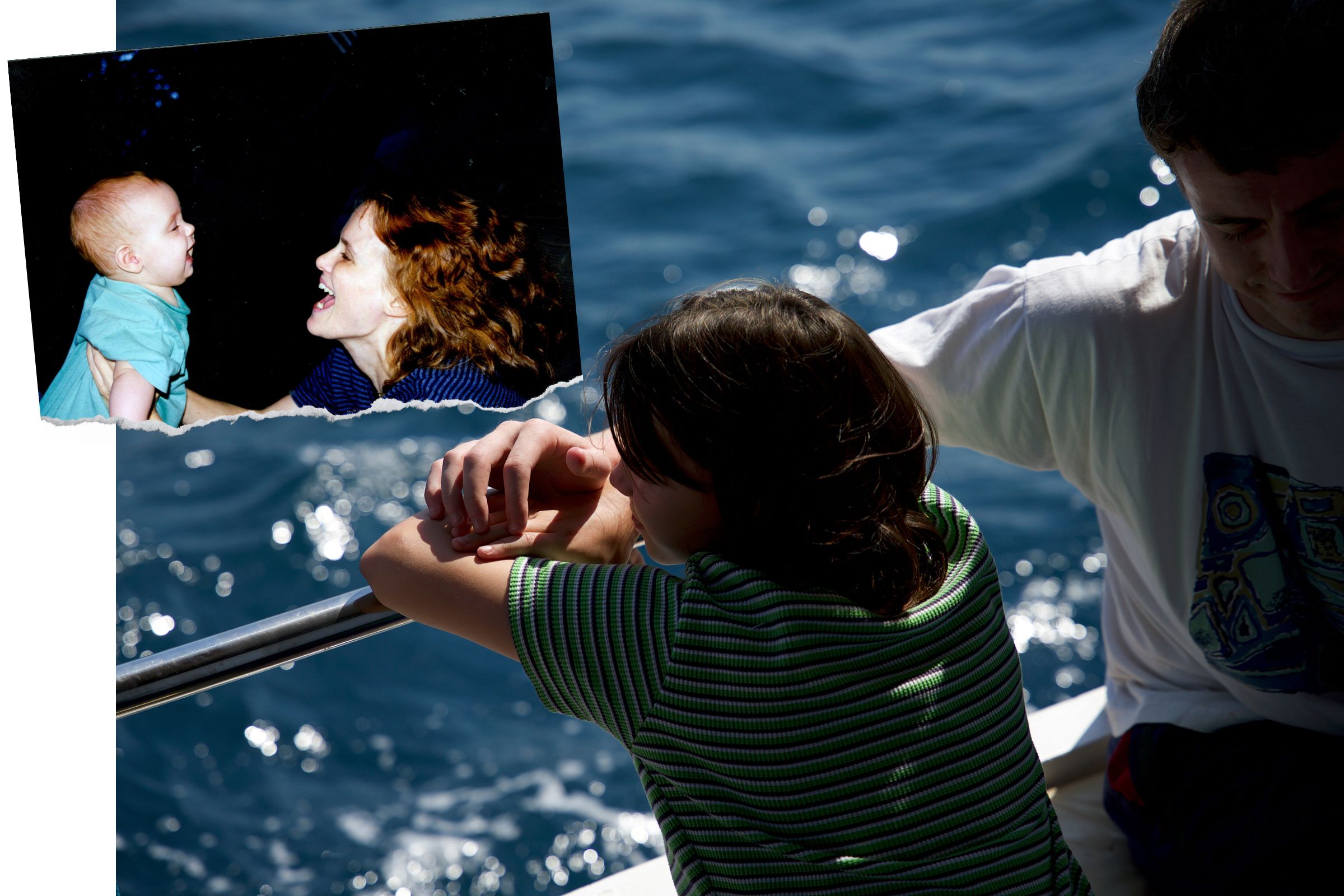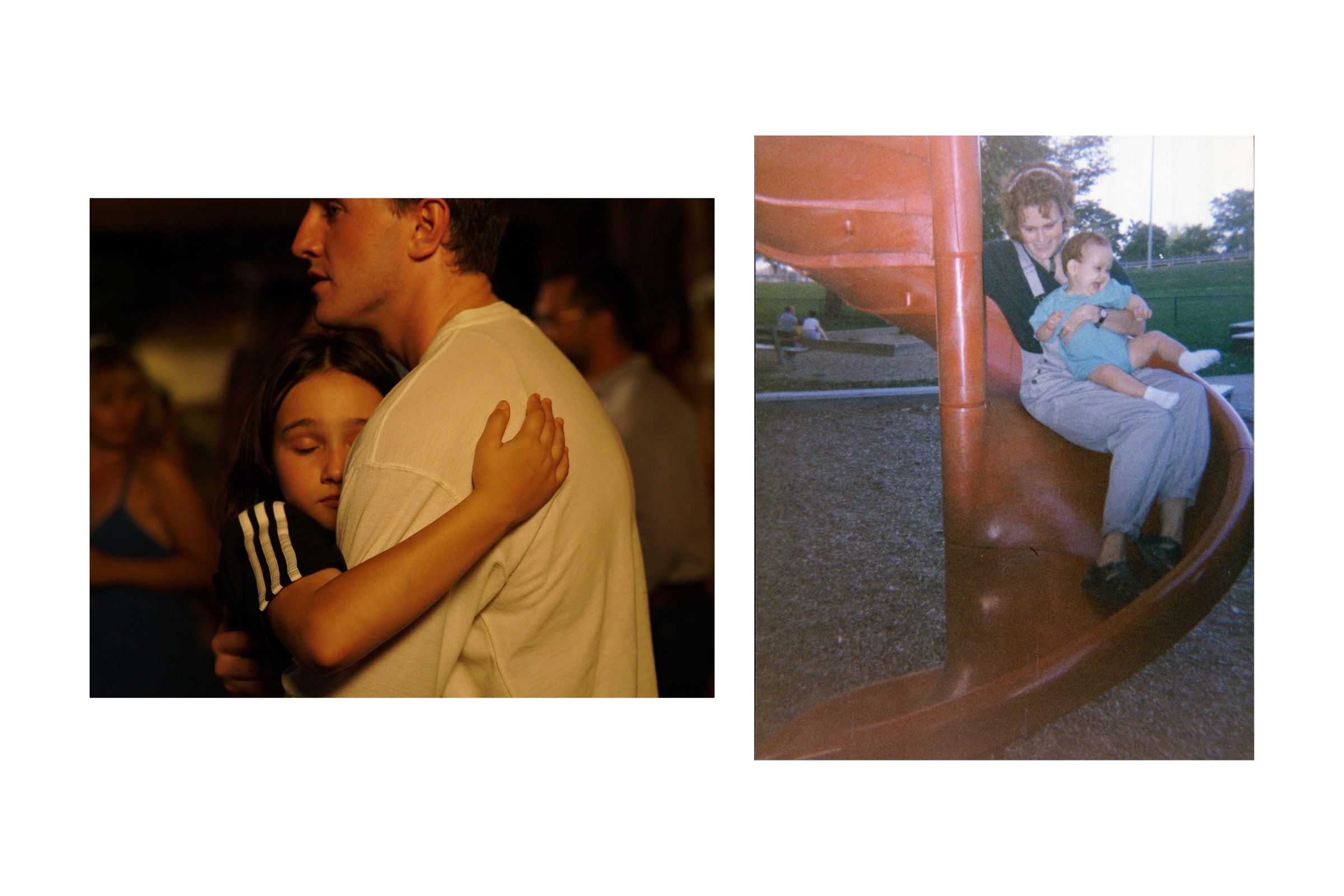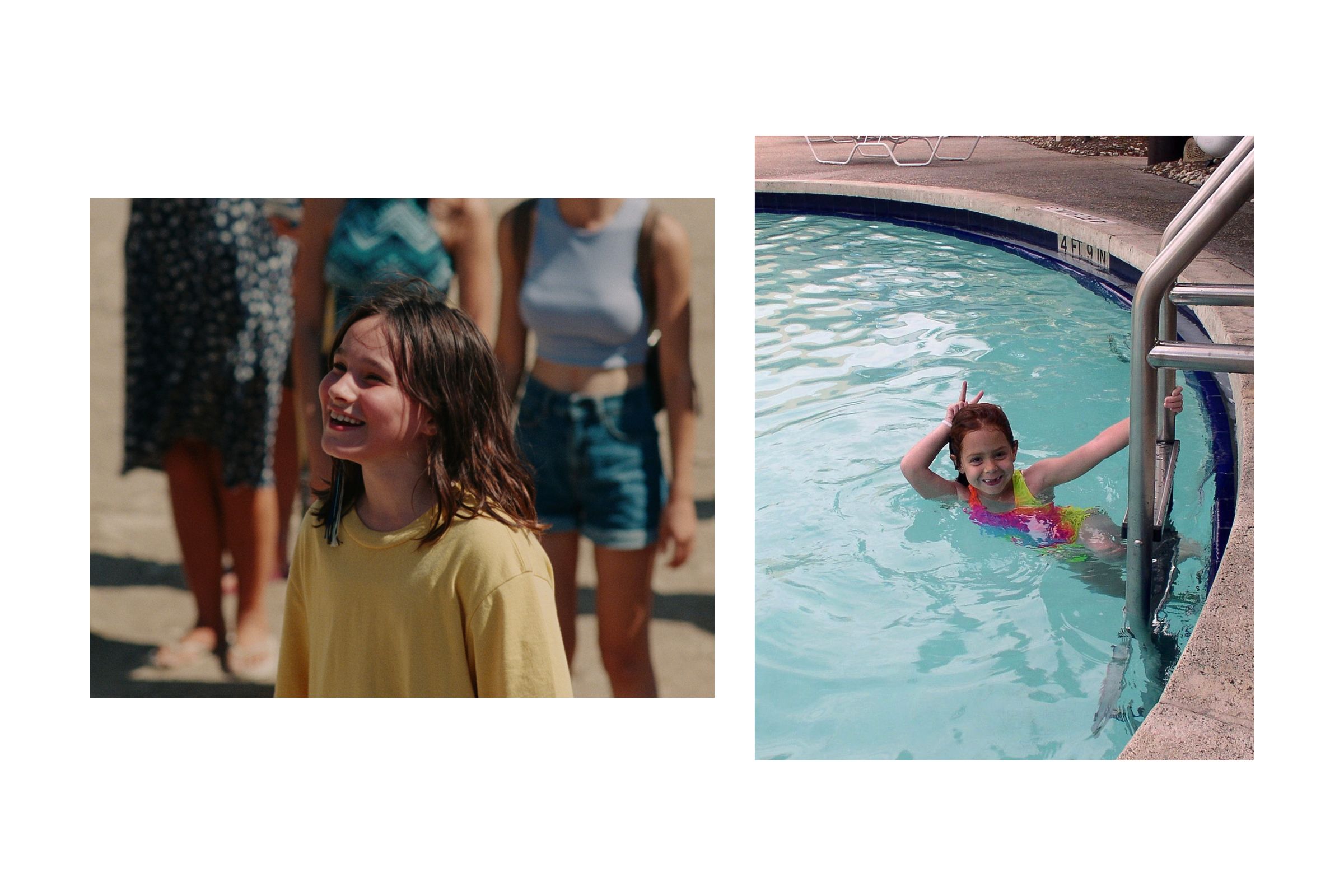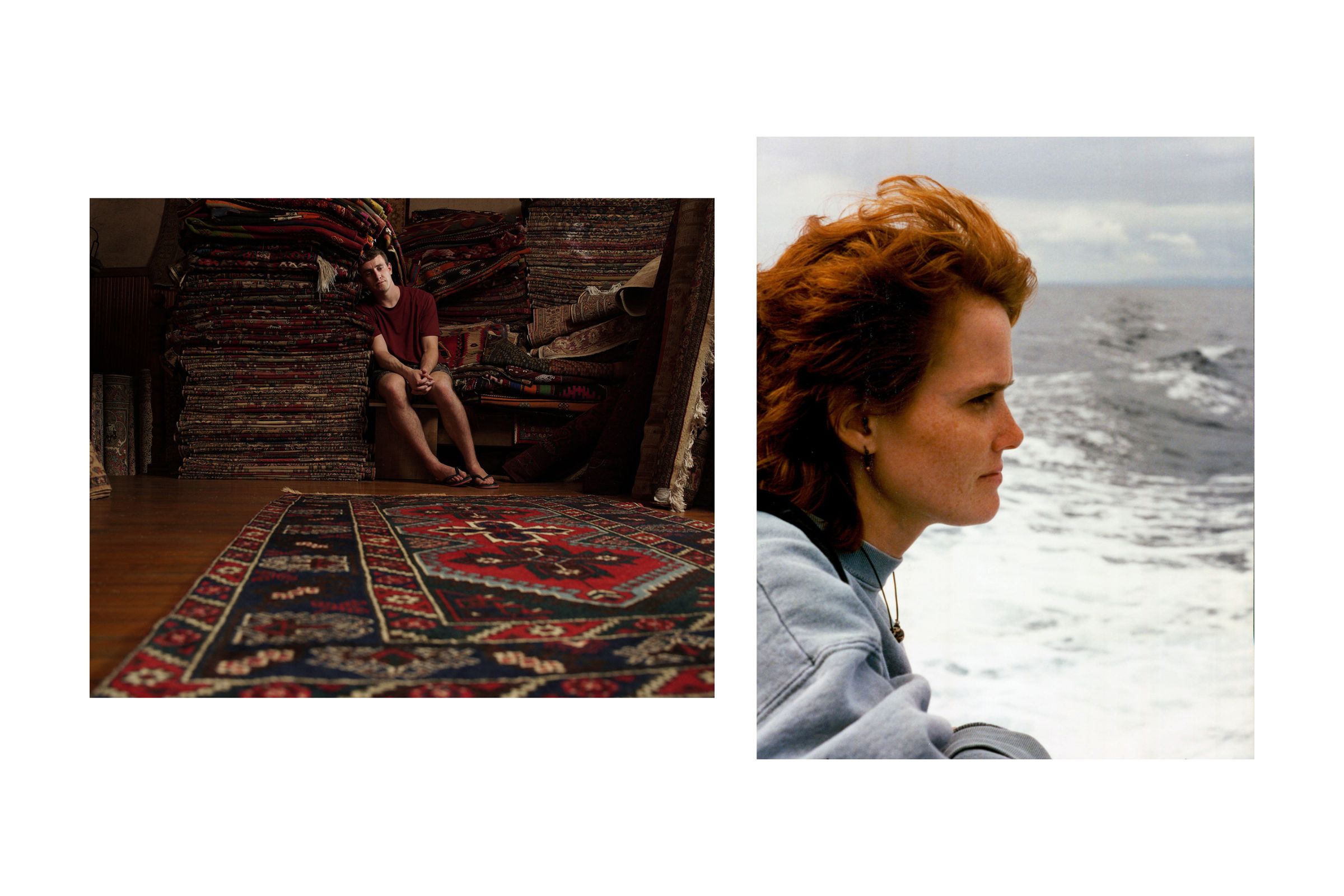
11-year-old Sophie (Frankie Corio) is flopped on the hotel room bed after a long, sunsoaked day at the pool. She’s lost in thought.
“You okay through there?” asks her dad, Calum (Paul Mescal), from the bathroom, where he’s brushing his teeth in front of the mirror.
“I don’t know. I guess,” Sophie replies. “I just feel a bit down or something.”
Calum asks what she means and Sophie replies, “Don’t you ever feel like you’ve just done a whole amazing day, and then you come home and feel tired and down, and it feels like your bones don’t work? They’re just tired and everything is tired. Like you’re sinking. I don’t know. It’s weird.”
In the bathroom, Calum is quiet for a long moment. He looks down, like he can’t bear to meet his own reflection. “Well,” he says, “we’re here to have a good time, eh?” Unseen by Sophie, he abruptly looks up and spits out his toothpaste at the mirror, locking eyes with himself for a split second.
That brief glance contains multitudes: Calum’s gears are spinning, processing the realization that his daughter, whom he loves fiercely, has begun to experience the burden he lives with. There’s an ache in his eye, and a flash of steely disgust—the shame and guilt of depression, personified. The moment—from a scene in the film Aftersun, a semi-autobiographical coming-of-age drama written and directed by Charlotte Wells in her feature debut—sent my gears spinning, too. I saw my mother in Calum’s eyes—and myself in Sophie. What, I wondered, would she have seen in that hotel bathroom mirror? I know what I see.

Aftersun has been critically acclaimed since its release in 2022; Wells received a BAFTA for the film and Mescal is nominated for Best Actor at the Oscars on Sunday for his heartrending performance as Calum. The story meanders, following Calum and Sophie on holiday in 1990s Turkey. Sophie’s parents are separated, like mine, and she lives with her mom, like I do when I visit home. This is a slice of life, less a movie driven by plot than by Sophie’s gradual understanding of her father as a whole, flawed person beyond parenthood. Like Sophie, we don’t realize until perhaps too late that this is one of the last times she will see him.
I watched Aftersun on the flight from New York to Chicago—one of the more vulnerable ways to watch a movie—on my way home to celebrate my mom’s 57th birthday. While Sophie and Calum are in Turkey, Calum turns 31. He tells a diving instructor he’s surprised he made it to 30, and doesn’t expect to make it to 40.
When my mom was my age, she attempted suicide—the unspoken theme that quietly flows through Aftersun, alongside the glittering Mediterranean. The night I arrived in Chicago this past month, I came home from a date and my mom had had too much to drink, gone to where I could not follow, eerily reminiscent of another scene from the movie. It’s a turning point in the film, following a string of unhurried sequences—lounging by the pool, watching paragliders drift by, taking in cheap resort entertainment. Sophie has signed herself up for a karaoke duet with her dad, something they’ve done every holiday. But tonight, Calum’s had a few beers too many and isn’t feeling up to it. So Sophie takes the stage alone, awkwardly singing solo to “Losing My Religion” by R.E.M.
“I thought that I heard you laughing,” she croons at her dad. “I thought that I heard you sing. I think I thought I saw you try. But that was just a dream.” This alone strummed at my heartstrings.

But then Sophie and Calum decide to split up for the night, the daughter clearly miffed by her parent’s inability to play along. Sophie explores, hanging out with the older kids at the resort. Later that night, she has her first kiss, growing up too fast. Back in the room, Calum watches already-nostalgic footage from their handheld camcorder. It’s a tender shot of Sophie talking goofily about her “wonderful, marvelous, amazing” parent. He looks down again, brow furrowed, seemingly in pain, shuts the camcorder, and leaves. We watch him disappear to the dark, deserted beach, where he trods single-mindedly toward the water, evoking The Bell Jar. After he disappears into the surf, the camera lingers there for almost a minute, foreshadowing what is, or may be, to come.
When Sophie returns to the room (with the help of the receptionist, having been literally, accidentally, shut out by Calum), she finds him passed out on her bed and covers him with a sheet.
But that’s the thing: Calum is asleep on the lone bed in the hotel room, which he had immediately bequeathed to Sophie at the beginning of the vacation. Without a thought, he relegated himself to a tiny rollaway cot—something my mom has done (figuratively, if not literally) time and time again. Regardless of his mental health, Calum is a good dad, a great dad.
“There’s a very distinct public versus private aspect to him,” Mescal told Mubi, the global streaming platform that released the film in the U.K. “There’s something really colorful about him, and exuberant. And I think he’s an excellent father, but he obviously has a lot going on behind closed doors.”
If you ask my friends from home, who refer to my mom as “Mama Z,” she is a loving, doting mother figure, always making sure everyone had enough to eat. To them, she is cheerful and bright. To me, she is, too—I just understand now the complexities behind that.
Over the years—and especially during peak pandemic, when the two of us shared a small home—we’ve navigated our depression together, making it slightly less lonely but also infinitely more so. Neither of us want to admit to the other—my only mother, her only child—that it feels like our bones don’t work. We, like Calum, yo-yo through life, oscillating between the inability to get out of bed and forcing ourselves up, determined to start fresh.

In a note for A24, published the day that the film was released in the U.S., Wells described the Turkish concept of hasret as “some combination of longing, love, and loss. A memory of intimacy from a point of distance.”
I feel this almost every time I look at my mom these days. A line from the Marge Piercy poem “My mother’s body” jumps to mind: “You sing in my mind like wine/ What you did not dare in your life you dare in mine.”
In Aftersun, at some point, we realize that these scenes are all recollections, reconstructed from camcorder videos and memories by an adult Sophie, now with her own partner and child, her toes touching the red, patterned Turkish rug that Calum couldn’t afford but bought anyway on that vacation. She has a bittersweet relationship with her father, inextricable from a nostalgia that I already feel, however nonsensical. Hasret. I too crave more time with my parent, but fear what realizations that might bring.
Early in the film, Sophie and Calum lay by the pool. “I think it’s nice that we share the same sky,” Sophie says. “What do you mean?” Calum asks.
“Well, like, sometimes at playtime, I look up to the sky,” Sophie replies. “And if I can see the sun, then I think about the fact that we can both see the sun. So, even if we’re not actually in the same place, and we’re not actually together, we kind of are in a way, you know? Like, we’re both underneath the same sky, so we’re kind of together.”
My mom and I are always kind of together, bound by the same sky, the same inexplicable sadness, and the same chipper tenacity. I know what I see in the hotel bathroom mirror, but I hope she looks into her own eyes and sees mine, full of hasret.
If you or someone you know may be contemplating suicide, call the National Suicide Prevention Lifeline at 1-800-273-8255 or text HOME to 741741 to reach the Crisis Text Line. In emergencies, call 911, or seek care from a local hospital or mental health provider.
More Must-Reads from TIME
- Donald Trump Is TIME's 2024 Person of the Year
- Why We Chose Trump as Person of the Year
- Is Intermittent Fasting Good or Bad for You?
- The 100 Must-Read Books of 2024
- The 20 Best Christmas TV Episodes
- Column: If Optimism Feels Ridiculous Now, Try Hope
- The Future of Climate Action Is Trade Policy
- Merle Bombardieri Is Helping People Make the Baby Decision
Contact us at letters@time.com